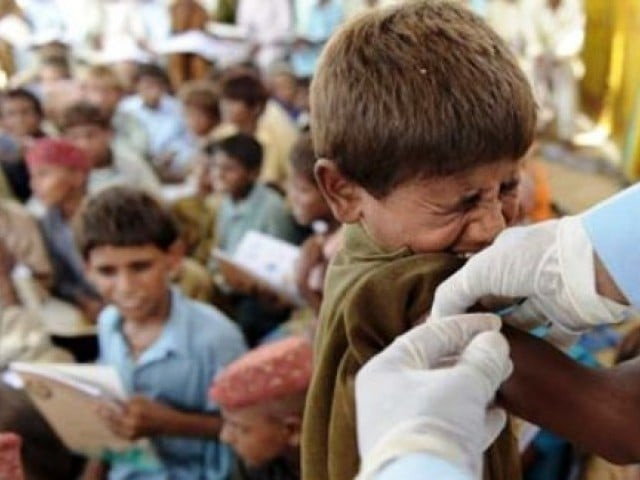Urban forum: ‘Funds not an issue, poor management is a worry’
Private sector needs to absorb workers entering the job market every year: Pasha

PHOTO: AFP
Finance Minister Ayesha Ghaus Pasha on Monday dismissed the impression that allocation of funds for health and education sectors was inadequate. She said availability of funds was not a problem in the two sectors. “The government is spending a good amount of money in health and education sectors. The problem lies in [poor] management and service delivery. We’re trying to fix that,” she said.
She said efforts were under way to achieve a gross enrollment target of 98 percent in primary schools and an immunisation target of 88 percent. She said the provincial government was using innovative information technology tools to improve monitoring of service delivery. She said the government was considering starting a health insurance scheme for the extremely poor.
Pasha said eradication of child labour was high on the government’s agenda for the next two years. “We are committed to ensuring a safe and conducive work environment for women employed in both public and private sectors,” she said.
She said around two dozen development projects had been initiated to expand livelihood opportunities, especially for women.
Other pro-women initiatives included two women empowerment packages announced in 2012 and 2015, she said. She said inheritance laws had been amended to ensure greater financial autonomy for women. Strict implementation of amended laws would be ensured, she said.
Pasha said the informal economy in the country was almost a third of the national economy. She said low efficiency of most tasks performed in the informal sector was contributing to poverty in urban areas. She said people engaged in the informal sector lacked access to credit and possessed limited skills.
Pasha said around one million new workers were entering the labour market every year. The public sector was overcrowded and could not accommodate these workers, she said. She said the private sector would need to absorb these workers.
She said the growth framework had been developed in context of these facts. “We have set an economic growth target of around 7-8 percent. It will help create more jobs,” she said.
Alongside, she said the government had initiated interest-free loan schemes and demand-driven technical and vocational training programmes for the youth. She said two million people would be trained in various marketable skills under these programmes.
Pasha was responding to criticism by other panelists at a session at the Pakistan Urban Forum.
Earlier, Homenet Pakistan Executive Director Ume Laila Azhar highlighted the problems of home-based workers. She said some estimates put their contribute to the national economy at around Rs32 million. She lamented that home-based workers were not recognised as labourers under the law and had no say in policymaking.
Oxfam expert Hashim Zaidi said that the rate of population growth in Pakistan was higher in urban areas than in rural areas. He said high population growth and rural to urban migration were contributing to the informal economy.
He said domestic workers, especially women, were the most vulnerable group in the informal sector.
He stressed the need for laws on social protection of this segment.
Economist Qais Aslam gave a presentation on budget allocations for women and home-based workers.
He said resources allocated for social protection of home-based workers, gender equality and child welfare initiatives were a tiny fraction of the provincial budget.
Published in The Express Tribune, December 8th, 2015.



















COMMENTS
Comments are moderated and generally will be posted if they are on-topic and not abusive.
For more information, please see our Comments FAQ